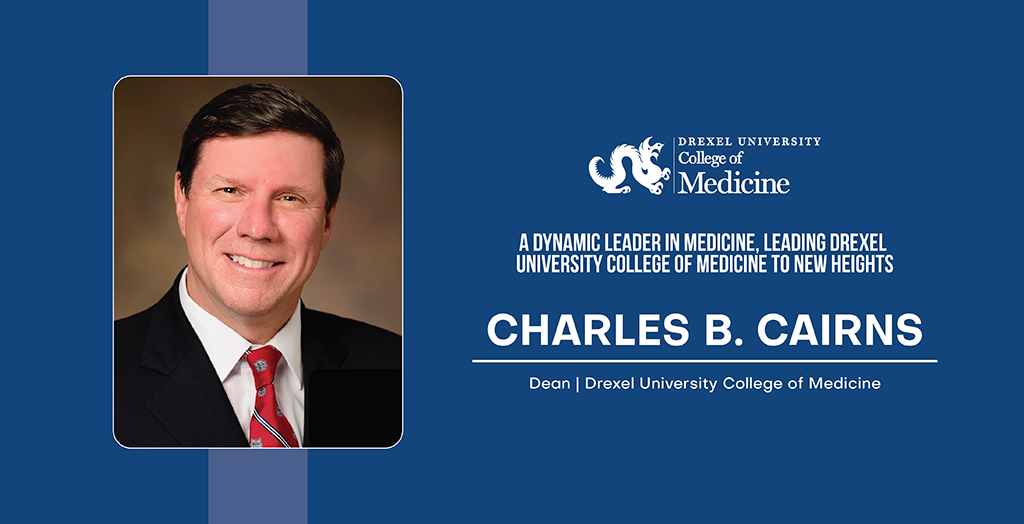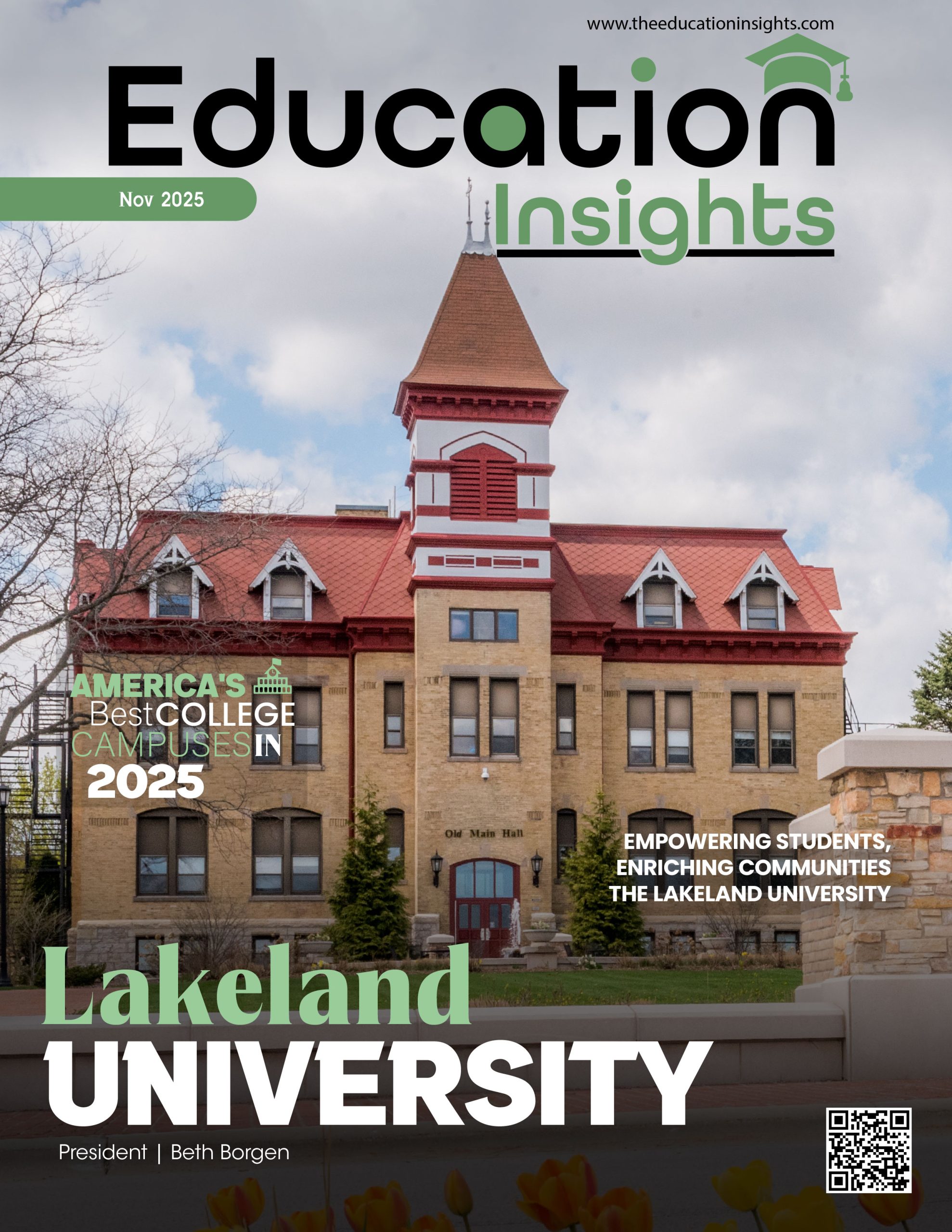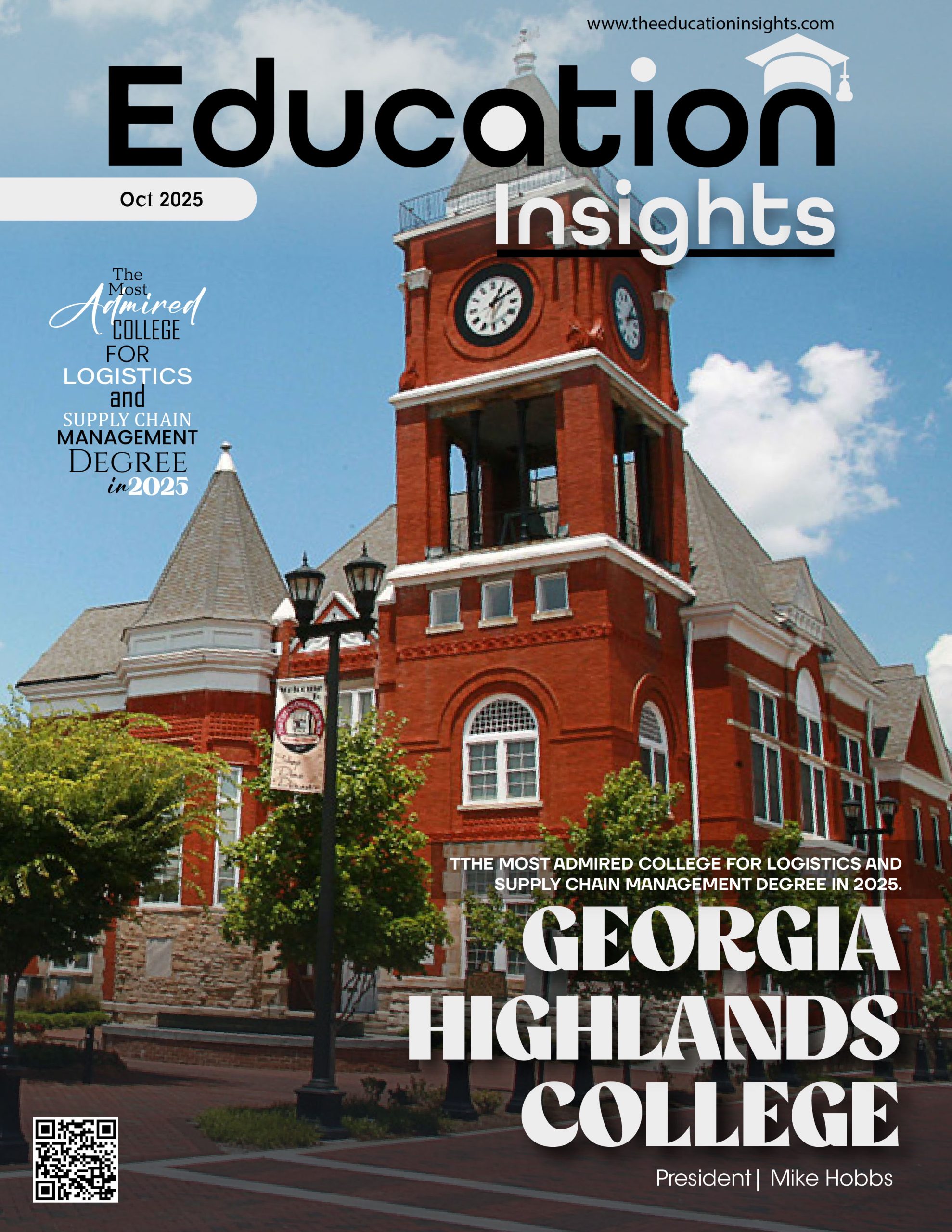In the world of healthcare, some exceptional individuals excel in their roles, bringing a unique perspective and vision to the field. Charles B. Cairns, MD, is one such visionary in medical education, training, and research. With almost 20 years of diverse leadership experience, Dr. Cairns serves as the Walter H. and Leonore Annenberg Dean, Drexel University College of Medicine, and Senior Vice President for Medical Affairs at Drexel University.
Early Years and Education
Reflecting on his early years, Dean Cairns shares, “I spent the summer working on a road crew with a first-year medical student. It was hot work pouring tar to repair rural roads, but I had plenty of time to talk to him about his experience in medical school and his aspirations in medicine. The next summer, coincidentally, we both spent time in research labs at the National Institutes of Health.”
His subsequent college summers included trauma research at the University of North Carolina and Duke University medical schools, as well as volunteering in intensive care unit waiting rooms. These experiences solidified his decision to pursue a career in medicine. He chose emergency medicine as his specialty to combine research with clinical care to help anyone who needs care. After completing a cardiology research fellowship, he was fortunate to have faculty appointments and progressive leadership positions at UCLA, Colorado, UNC, and Duke. Cairns has had the honor of serving as medical school dean at the University of Arizona, United Arab Emirates University, and now at Drexel University.
Drexel University and Trajectory
His journey led him to become a part of Drexel University because of its commitment to innovation and community impact. The institution holds a remarkable history, with its predecessor schools including Hahnemann Medical College, founded in 1848, and Woman’s Medical College of Pennsylvania, the world’s first degree-granting medical school for women, founded in 1850. Drexel University itself was founded in 1891 to serve the needs of people in the Philadelphia community. Thus, there is over a 175-year history of making a difference and impacting communities. The Drexel University College of Medicine strives to do that daily across multiple campuses across states—from east to west, north to south—and in urban, suburban, and rural areas.
Empowering Students to Tackle the Challenges of Modern Healthcare
Drexel’s College of Medicine embeds the students into community service projects starting on the first day of medical school. The students get exposed to not only outstanding clinical care and cutting-edge science but also to the day-to-day needs of patients and diverse populations across a wide range of community settings. Thus, they are exposed to both the opportunities of modern medical science and care, as well as the challenges of those underserved by that care and underrepresented by the promise of medical innovation. Furthermore, they train students to be competent in the digital transformation of health care, including access to TriNetX, a dynamic patient database with over 250 million patient records from more than 220 healthcare organizations and 30 countries. Finally, they embrace the concept of the convergence of biomedicine, engineering, and informatics with programs that cross-medicine with the Drexel University School of Biomedical Engineering and the Drexel University College of Computing and Informatics.
A Holistic Approach for Mental and Physical Well-Being of Students
The institution is highly dedicated to taking complete care of its students. In addition to mental health providers dedicated solely to the medical students, all the medical students register for the 24/7 mental health telehealth service starting on their first day of medical school. The institution has also embraced peer-to-peer support groups.
Valuable Resources to Assist Students in Securing Residencies and Fellowships
The institution offers a coordinated and longitudinal career advising program that spans all four years of medical school. This program includes class meetings, peer mentors, alumni panels, and many other resources. Additionally, each student meets with two physician advisors: one pathway advisor in their chosen specialty and one student affairs dean. These dedicated experts provide individual career support, specialty exploration, and guidance for specialty selection, residency applications, and ranking guidance. They also utilize 2,500 clinically active faculty physicians across eight health systems to provide additional advice. As a result, they have very high match rates, and essentially every graduate at Drexel’s College of Medicine obtains a residency position.
Promoting Diversity and Inclusion
Dean Cairns believes that healthcare providers who share the same language, culture, and gender as the patients they serve can improve healthcare outcomes. At Drexel University, there is a unique one-year Master of Science degree program called Drexel Pathway to Medical School. This program is designed for talented students who have been personally affected by healthcare disparities or socioeconomic or educational barriers. Students who complete this program and meet specified academic, professional, and MCAT criteria may confirm enrollment into the MD program the following year. At the College of Medicine, this commitment includes investments in training, mentorship, and community-building efforts to nurture a culturally prepared workforce that strives to be free of bias and empowers diverse voices to provide solutions to healthcare challenges. Drexel University is dedicated to building a diverse and inclusive community that provides opportunities for excellence and achievement for the students, faculty, and staff.
The Significance of Alumni Network
The College of Medicine has a large alumni network, which includes alumni from Drexel as well as from its predecessor medical colleges: Hahnemann Medical College, Woman’s Medical College of Pennsylvania, and the Medical College of Pennsylvania. The alumni association provides resources to support student scholarships, career advice, clinical shadowing, and research experiences.
Supporting Students’ Involvement in Community Service
Drexel has a dedicated Office of Community Health and Inclusive Excellence, which builds upon the College’s mission to advance community service, education, clinical care, and research while addressing the needs and health disparities of the local neighborhoods. Starting from the first day of medical school, students are involved in community service through the institute’s 60 external community partnerships.
The Remarkable Impact of Drexel’s Culture
Drexel promotes a strong sense of community by organizing students into seven student “societies,” which serve as learning communities throughout their medical school journey. Additionally, each clinical campus has its own campus community embedded into the health system in the town and city where it is located.
Notable Initiatives: Striking a Balance Between Academics, Extracurriculars, and Research
The faculty actively encourages students to participate in extracurricular activities and research programs. The College of Medicine offers various Festablished programs to provide students with research opportunities, including funded Medical Student Research Fellowships, 4th-year research electives, gap-year and dual degree MD/MS research years, and elective scholar concentrations in Biomedical Research, Public Health, Global Health, Medical Education, Business of Healthcare, and Medical Informatics.
Shaping the Future of Drexel University
Dean Cairns’ vision encompasses both the present and future of the university. Looking forward, his goal is to expand the state-of-the-art medical education buildings in Philadelphia and Reading, PA, to include expanded inter-professional education programs, innovation programs in biomedical convergence, and new specialty and innovation educational programs at the regional clinical campuses.










